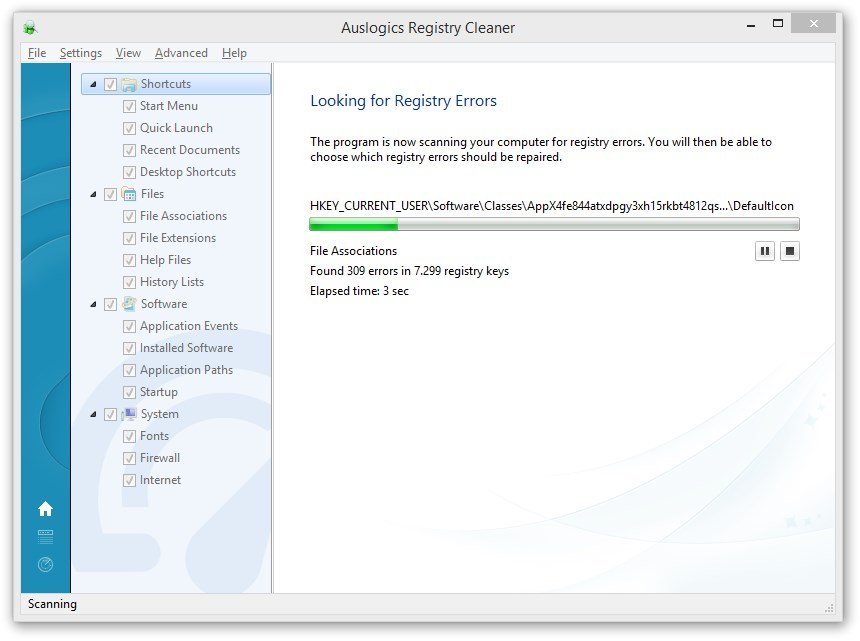

- #CCLEANER REGISTRY CLEANER VS AUSLOGICS DISK DEFRAG INSTALL#
- #CCLEANER REGISTRY CLEANER VS AUSLOGICS DISK DEFRAG UPDATE#
- #CCLEANER REGISTRY CLEANER VS AUSLOGICS DISK DEFRAG SOFTWARE#
I just don't like leftover junk floating around in there. I have run utilities like these for a very long time and have never had any problem as a result. I understand your point of view about "Who cares if a 150 MB database has a few dozen (or even a few hundred) harmless dead twigs in it?" Still, there's a reason CCleaner and other similar utilities are so popular, and it might just go beyond the notion that they're only used by people who don't know any better.
#CCLEANER REGISTRY CLEANER VS AUSLOGICS DISK DEFRAG UPDATE#
(I know I said that twice.) You don't have to let the Auslogics Reg Cleaner delete Windows Update data.Īlso agree that you do not want to deal with a screwed-up Registry. I completely agree with at least one of your primary points, RustySavage: "aggressively cleaning the registry can lead to potentially serious problems." It's why i suggested being careful, examining the Default settings and making choices, and being careful. Why risk screwing it up to "fix" a bunch of inert "problems"? You also have to have a lot of blind faith in the programmer of the reg cleaner, who may or may not be adequately knowledgeable in the intricacies of the Windows registry. I think we all have some notion of how profoundly a screwed up registry can affect a computer system. Who cares if a 150 MB database has a few dozen (or even a few hundred) harmless dead twigs in it? Even if you get to review what these cleaners intend to clean, how many of the entries include CLSID keys such as:Īnd other keys that are impossible to decipher unless one researches them? Even then it may not be possible for the average (even advanced) user to understand what's being deleted. As mdonah has shown, aggressively cleaning the registry can lead to potentially serious problems.

The registry on a SSD doesn't become defragmented any less than a registry on a HDD, so that's a moot point.ĬCleaner is a much less aggressive registry cleaner than many others, including Auslogics. Also, you might want to completely ignore this program's somewhat sneaky ( and somewhat clandestine) thoroughly useless "system status" check up 'selling' feature after the registry cleaning is complete. Be sure to uncheck those options if you're not interested.
#CCLEANER REGISTRY CLEANER VS AUSLOGICS DISK DEFRAG INSTALL#
Side Note: For anyone who may be reading this thread but has not yet tried Auslogics Registry Cleaner (but might want to try it out): During the original installation process, Auslogics Registry Cleaners setup file tries to install a browser toolbar and make changes to your browser's home page. This is particularly true for those who want to alter the original and "standard" CCleaner settings included and initiated by the author (after you initially install the program). A thorough reading of the online HELP files would also help you to get the most out if it.
#CCLEANER REGISTRY CLEANER VS AUSLOGICS DISK DEFRAG SOFTWARE#
It's incredibly easy to use and automatically prompts users to backup the registry before it makes changes at all, and the software also includes a number of other useful tools. In fact, CCleaner is probably the best "free" registry cleaner program I've ever tested. Having tested both of these programs on numerous occasions in the past it is my belief is that CCleaner is ( most importantly) the "safer" and more effective of the two as well, where registry cleaning is concerned, as well. Does one appear to be more effective, etc. Do they serve the same function, to the same extent?.

I was actually referring to the two registry cleaners: Auslogics Registry Cleaner vs CCleaner.


 0 kommentar(er)
0 kommentar(er)
